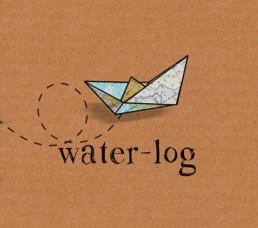James hates talking on the VHF. Whenever we need to do so he always shakes his head vehemently and thrusts the microphone in my direction.
Without regular access to a mobile phone or your own personal wifi your boat’s radio systems become your lifeline. At short range the VHF can turn any anchorage into a bustling society, with weather advice, items for sale, and local events being broadcast over a local net. Over longer distances an SSB transforms your radio usage from convivial chitchat to essential safety gadget.
When we first got our boat we had no idea of the huge cruising community using radio nets to keep in touch when crossing oceans. Having grasped the concept of these and started using them regularly in the Caribbean we then found our Pacific crossing to be full of friendly camaraderie with daily check-ins, position updates of friends in the fleet and invaluable weather advice.
Radio language, however, takes a bit of getting used to. With a surname like mine I welcome the ability to chant out “Yes, that’s L-for-Lima, L-for-Lima, O-for-Oscar, Y-for-Yankee…” the words tripping over my tongue. However the conversation side of radio speak can be a bit tricky. We’re so used to speaking over one another and interrupting during the course of face to face or phone dialogue that the necessity for talking strictly in turns is a bit of a fine art to master. It’s so easy to forget to utter “over” at the end of each part of your communication.
It’s equally common to forget that, unlike the telephone, you’re not dealing with a private line. There are always stories of unlucky cruisers who find they’ve been the victims of petty theft of items from their decks only to later realise that they had made their arrangements for going out over the VHF. Remember, you’re not only broadcasting to your friend you’re also broadcasting to the slightly suspicious down-on-his-luck local fisherman or anyone else who might have a radio.
One thing I’m really charmed by is when sailing kids pluck up the courage to start using the VHF properly. A child’s voice clearly sounding out “Shall we go up one?” demonstrating both their understanding of working channels and adopting the sailor slang lingo that their parents practice is just cool. I also consider it to be essential training for our cruising tots from as young an age as possible. After all, you never know who onboard will need to make a radio call in an emergency, so the more comfortable they can be with it, the better.
But, although I don’t share my husband’s rabbit-in-the-headlights fear of using the radio I must admit to being uneasy about hailing anyone when using a foreign language. That first radio call when coming into a new country, sometimes even a country where they speak a multitude of different languages, does transform me into some sort of stuttering creature. I panic slightly and bark half-words and part sentences until enough of my gabble is understood to get us safely onto a customs dock or quarantine mooring.
Or there’s the equally nerve-wracking business of making repeated calls and hearing nothing in reply. I patiently echo our boat name, over and over, asking “Do you copy? Are you receiving me?”. I tend to find this scenario particularly worrying, quite understandably, when approaching an opening bridge and failing to get a response straight away. And of course there always ends up being bags of time and space in which to make the correct manoeuvre but it does still make me a little frazzled.
When you’ve been in one area for a while and gotten used to the local VHF radio net you can get quite adept at it. Indeed, in some instances you have to be something of a microphone quick draw in order to be the first to register your interest in an item for sale, answer a trivia quiz question, even to introduce yourself or bid your farewells when you’re in the height of the cruising season.
And, although I’m far from being any kind of radio aficionado, it still annoys me when TV shows or films include people using the phrase “over and out”.
“It doesn’t mean anything!” I wail, “You say ’over’ when you’re expecting a reply and you say ‘out’ when all communication is finished. Saying both doesn’t make any sense!”
James rolls his eyes at me and suggests I let it go. Whereupon our VHF crackles into life, we’re being hailed by our friendly local electrician, and I leap to the microphone happily.
“Roger that, I’ll just get him for you. Over.”
